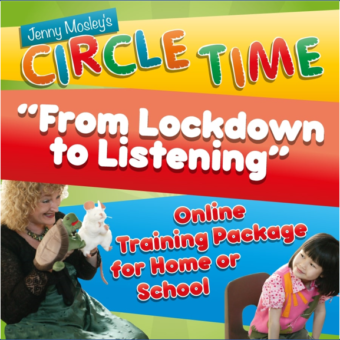Blog
What Does ‘Recovery Curriculum’ Mean?
It’s very early morning in the kitchen. With a clock that ticks too loudly and the soft calling of pigeons outside. I’m sitting thinking and my mind keeps being drawn back to the many words being spoken on the internet about the Recovery Curriculum. Certainly, a very strong group of people have been inspired by the work of Barry Carpenter and Matthew Carpenter in Birmingham – and they are facilitating excellent discussions (see Recovery Curriculum). I love the empathic, wise, sensible way they write about the needs of children in response to all the loss they have experienced because of the Pandemic.
It’s the word ‘recovery’, I feel my mental tongue keeps poking it like a wobbly tooth. What I really want is an even ‘wider’ sense of the word ‘recovery’.
I have been in education for 48 years and I have been in schools most days, even in the holidays I would be working in Scotland or Southern Ireland in August or overseas. Over 12 years ago, the Labour government was promoting the Social and Emotional intelligence of children, and children’s ability to understand and manage their emotions, was high on school agendas. The SEAL curriculum was going strong; a fabulous, beautifully thought through resource, by an excellent team of educators, under the direction of the wonderful Jean Gross. This excellent team were all deeply committed to giving all children the best chance in life. I was very happy to be asked to contribute my Circle Time guidance for the Early Years, Primary and Secondary sectors. It was a resource to be proud of and is still available today.
 As a contribution towards school recovery, Jenny has written her own online staff training package, ‘From Lockdown to Listening and Learning’. You can see a FLYER for it here. If you are interested in viewing this for sale in the online webshop, just CLICK HERE.
Do visit www.sealcommunity.org to see important SEAL resources that are very relevant for today’s schools and today’s children.
As a contribution towards school recovery, Jenny has written her own online staff training package, ‘From Lockdown to Listening and Learning’. You can see a FLYER for it here. If you are interested in viewing this for sale in the online webshop, just CLICK HERE.
Do visit www.sealcommunity.org to see important SEAL resources that are very relevant for today’s schools and today’s children.
At this time, don’t forget to draw on the national SEAL resources for work with children on change, loss and resilience. They are all still freely available to download from www.sealcommunity.org
Twelve years ago I would go into schools, and in most schools there would be three weekly sessions of genuine engagement of what children need emotionally to understand the world. There would be a SEAL, PSHE and a Circle Time session. Most schools understood that Circle Time is a discrete entity in itself. Yes, it can be a great forum for delivering other bodies of knowledge – but it also needs to be practiced weekly in its own right. It does not have any agenda other than that which individuals bring to the session. It focuses entirely on what those individuals need to understand, what is happening now; on this day, in this time e.g relationships in the playground, why they get so angry and what they can do about it, what’s currently happening around them and how can they deal with it, i.e the ‘now’ of the human condition. During these last twelve years, in many other schools I trained in, none of these options have been available weekly to children. Teacher training has also lessened its commitment to these areas, so I meet very few young teachers who have any depth of training in active group work and listening. Twelve years ago, there were many great inspiring practitioners embraced by schools whose work is still as relevant and as important as ever. Like Ros Bailey – what a wonderful woman of ideas. Beautiful accessible books with puppets and Beat Babies as partners in children’s learning (I believe Yellow Door publishes her work now). Noreen Wetton, from Southampton University and her therapeutic ‘Draw and Write’, a subtle and relaxing way of helping children understand their feelings. Then there is the important work by Sue Palmer and her best-selling ‘Toxic Childhood’ book, which was always championing a return to a more natural, simple way of being in schools. So basically, I don’t want us to think of the word “recovery” as applying to the last poorly funded, meanly conceived, target-riven, no time for listening to children decade. I want us to recover our common sense. We cannot bandy around words like ’wellbeing’ and ‘empathy’ unless schools are encouraged to timetable it. My very best Gold Award schools hold weekly Circle Times for staff. If the mental health of staff is not looked after, how can they help others? Children lost their voice a long time ago – well before the pandemic. We need to recover the concept of a listening school which many children have never experienced. Website Editor’s Notes As a contribution towards school recovery, Jenny has written her own online staff training package, ‘From Lockdown to Listening and Learning’. You can see a FLYER for it here. If you are interested in viewing this for sale in the online webshop, just CLICK HERE.
Do visit www.sealcommunity.org to see important SEAL resources that are very relevant for today’s schools and today’s children.
As a contribution towards school recovery, Jenny has written her own online staff training package, ‘From Lockdown to Listening and Learning’. You can see a FLYER for it here. If you are interested in viewing this for sale in the online webshop, just CLICK HERE.
Do visit www.sealcommunity.org to see important SEAL resources that are very relevant for today’s schools and today’s children.
